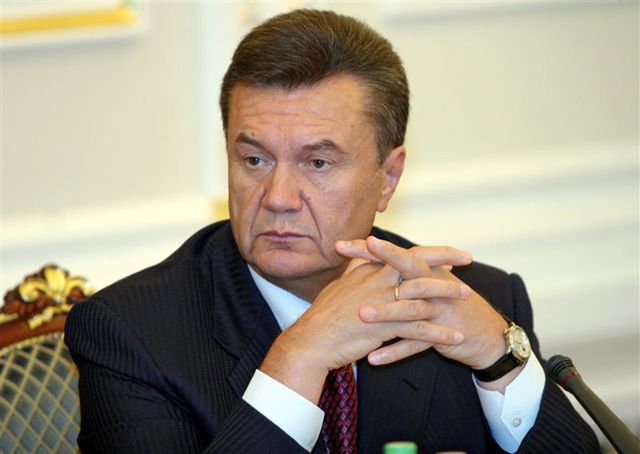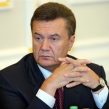
First 100 Days of Viktor Yanukovych Explodes Six Myths
Publication: Eurasia Daily Monitor Volume: 7 Issue: 109
By:

Viktor Yanukovych was elected on February 7 and inaugurated as Ukraine’s fourth president on February 25. June 5 marks his first 100 days in office.
Yanukovych won the 2010 Ukrainian presidential elections by the lowest margin in Ukrainian history (3.5 percent, compared to the traditional 8 to 16 percent) and is the first president to be elected with less than fifty percent of the vote. He won the same number of regions (ten out of 27) but with fewer votes than he received in December 2004, despite four out of five years in opposition and a severe financial and economic crisis.
Yanukovych’s weak electoral victory has not prevented him from launching a counter revolution in domestic and foreign affairs that overturns the work of Ukraine’s first three presidents. The two main counter revolutionary projects are the move from a Ukrainophile to a Russian-neo Soviet national identity (EDM, May 10). Ukraine has moved 180 degrees from Yushchenko’s pro-Western single vector to a pro-Russian single vector foreign policy. As leader of the Party of Regions, Yanukovych promised to pursue three policies after his election. First, forming a government composed of “professionals” and implementing a reform program, building political stability, and taking steps towards national integration.
During Yanukovych’s first 100 days in office none of these three policies have emerged. The government is led by former Kuchma era officials mainly in their late 50’s or early 60’s and therefore their careers began in the Leonid Brezhnev “era of stagnation.” No reform program has been put forward. Political instability is far more likely as a consequence of the counter revolution underway. Meanwhile, Ukraine’s regional divide has deepened, not improved, itself an outcome of these policies.
Yanukovych’s election was accompanied by six myths that fell apart after the counter revolution was unfurled. Unfortunately, these served to disorientate Western policymakers and analysts during his first 100 days in office:
1. Yanukovych was more likely to bring stability than Yulia Tymoshenko. Yanukovych’s counter revolution in Ukraine’s national identity and foreign policies may introduce greater instability in the country (Oleksandr Paliy, Ukrayinska Pravda, May 28).
2. Yanukovych learnt the lessons of election fraud in 2004 and recast himself as a democrat. This claim never quite stood up to scrutiny as Yanukovych did not accept the 2004 election results, arguing that there was no fraud involved and claimed that he was the object of a planned “US-backed conspiracy” (Orange Revolution). His views on 2004 only hardened over the past five years as no criminal charges were ever instituted against the organizers of the fraud.
The spring 2009 congress that launched Yanukovych’s candidacy was “respectable and modern,” Ukrayinska Pravda (April 25) reported. The April 23 congress that passed the leadership back to Prime Minister, Nikolai Azarov (the Party of Regions first leader in 2001-2003) was a “party congress from the Soviet era” with the leadership question taking place “according to the best canons of a CPSU congress” (Ukrayinska Pravda, April 25, 2010).
3. Tymoshenko, not Yanukovych, if elected would become the main threat to Ukrainian democracy. The first 100 days of the Yanukovych presidency has shown that his authoritarian tendencies were always greater. He was governor of Donetsk from 1997-2002 during which it became Ukraine’s only region with a similar political culture to Russia denoted by one party holding a monopoly of power. The constitution has been repeatedly infringed and parliament has been sidelined when the Stability and Reforms coalition was established and the Black Sea Fleet basing agreement was extended.
Media censorship has re-appeared leading to the formation of the Stop Censorship! NGO, with 500 journalists amongst its members from throughout Ukraine (https://www.telekritika.ua/news/2010-05-22/53128). Opposition leaders are being subjected to politically inspired criminal charges (https://www.telekritika.ua/media-continent/monitoring/medialiteracy/2010-05-28/53250). Protests have grown against police brutality following the death of a Kyiv student in police custody and police brutality against protestors in Lviv and Kharkiv (Ukrayinska Pravda, May 31, June 3).
4. Yanukovych’s pro-Russian program was dismissed as unlikely to be implemented if he were to be elected. Yanukovych would become a “Kuchma-2,” pragmatic, working with centrists and national democrats, and return Ukraine to a multi-vector foreign policy.
This myth misconstrued Yanukovych and the Party of Regions as “pragmatists” when they had evolved in the post-Kuchma era into an ideological political force that defended and represented the Eastern Slavic, Russophone and neo-Soviet political culture of Eastern-Southern Ukraine. Yanukovych and the Party of Regions receive support from ex-communist voters and have twice entered coalitions with the communist party. In the Crimean parliament, the Party of Regions has formed coalitions with Russian nationalists and the national-Bolshevik Progressive Socialists (EDM, March 2).
5. Russia equally supported Tymoshenko and Yanukovych; a view echoed repeatedly by President Yushchenko. As EDM (January 22, 29) highlighted, Russia gave its backing to Yanukovych, a factor evident since his election. Since 2005, the Party of Regions has a partnership with the Unified Russia party led by Prime Minister, Vladimir Putin. Fatherland, the party that Tymoshenko leads, is the most active Ukrainian party in the European parliament and a member of its European People’s Party group. The Party of Regions is not a member of any European parliamentary group.
6. The oligarchs are ready to become taxpaying, bona fide businessmen and support tackling corruption. This view, echoed by Western analysts such as Anders Aslund and Adrian Karatnycky (Kyiv Post, April 14, May 27), has proven to be unfounded. The oligarchs are interested in subsidized gas, which the gas lobby that controls Ukraine’s foreign policy and the Yanukovych administration has provided (EDM, March 18).
US-style “robber barons,” with which Ukraine’s oligarchs are often compared, only became bona fide businessmen when they were forced by the state; they did not do so of their own volition. Ukraine’s oligarchs are comfortable with the country’s partial reform equilibrium and an unreformed energy sector. Big business seeks to ingratiate itself with the new authorities and oligarchs are a threat to Ukrainian democracy as they control television where censorship is being re-imposed.
Yanukovych’s first 100 days in office has not fulfilled his election promise of reforms, stability and national integration. Meanwhile, he has introduced policies (such as on Sevastopol) that were not included in his election campaign.




